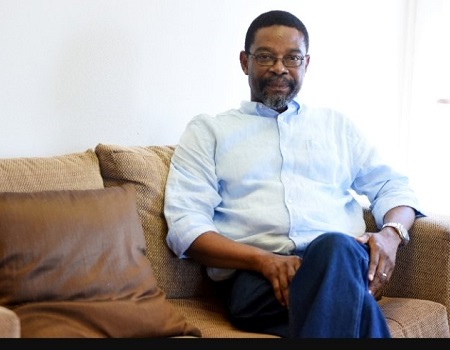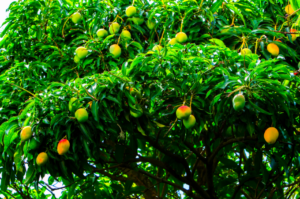
Harry Garuba, the Nigerian poet and professor, has passed on at the age of 61. He died on 28 February. His research interests included African modernities, postcolonial theory and criticism, and intellectual traditions of African nationalist writing. The official announcement by the University of Cape Town, where Garuba was employed, revealed he had endured a long illness.
UCT is greatly saddened to announce that Professor Harry Garuba (61) passed away on the evening of 28 February 2020 following a long illness. The university conveys heartfelt condolences to the Garuba family and friends. UCT will share more details later. pic.twitter.com/UrDqWVkFuk
— UCT (@UCT_news) February 29, 2020
The UCT leadership pays tribute to "an African intellectual and icon", Professor Harry Garuba, whose "scholarship was driven by a deep dedication." Professor Garuba (61) passed away on the evening of 28 February 2020 following a long illness. Read more: https://t.co/ybzEX0I5mN
— UCT (@UCT_news) February 29, 2020
Born in Akure, south-western Nigeria, in 1958, Garuba obtained his BA, MA, and PhD in English at the University of Ibadan. He taught English at the university from 1981 to 1997. From 1996-7, he served as an editorial board member and columnist at the national daily The Post Express. In 1998, he moved to South Africa, where he secured an appointment as Senior Lecturer at the University of Zululand. He joined the University of Cape Town in 2001, where he became a full professor in 2018. There, Garuba served as Director of African Studies, Acting Director of the School of African and Gender Studies, Acting Deputy Dean of Research and Postgraduate Affairs in the Humanities Faculty, and Acting Dean of the Humanities Faculty.
He was scholar-in-residence at the University of Illinois, a Mandela Fellow at Harvard University, and held fellowships at Emory University and the University of Texas at Austin. He sat on the editorial advisory board of the Heinemann African Writers Series and was an editor at Postcolonial Text. He was chair of the judges for the 2017 9mobile Prize for Literature.
His books include the poetry collections Shadow and Dream & Other Poems (1982) and Animist Chants and Memorials (2017) and the academic text Mask and Meaning in Black Drama: Africa and the Diaspora (1988). He edited the poetry collection Voices from the Fringe: An ANA Anthology of New Nigerian Poetry (1988). He published over 40 journal articles and book chapters. One of them, “Explorations in Animist Materialism: Notes on Reading/Writing African Literature, Culture, and Society” in Public Culture (2003), is cited by The Johannesburg Review of Books as “perhaps [his] most important intellectual intervention”:
. . . he developed the idea of animist thought as a system that spiritualises physical objects, ‘a continual re-enchantment of the world‘. Garuba theorised that ‘an animistic understanding of the world applied to the practices of everyday life has often provided avenues of agency for the dispossessed in colonial and postcolonial Africa’. The ideas he presented in this paper are regularly cited by academics today.
In a tweet, Africa Is a Country called him “one of the finest professors of African Studies and English.”
Harry Garuba (born 1958 in Akura, Nigeria), one of the finest professors of African Studies and English (longtime faculty member of the University of Cape Town, @UCT_news) has passed away. He was more South African than the xenophobes. #Ancestorshttps://t.co/YHJZ0rw0Lg
— Africa Is a Country. (@africasacountry) February 29, 2020
The University of Cape Town released a statement:
His dedication to his field was critical in developing the UCT Centre for African Studies as a hub for research on the African continent. As part of the university’s Curriculum Change Working Group (CCWG), Professor Garuba was committed to developing thinking about what a decolonised curriculum would look like in Africa and the global south and what a multicultural curriculum would look like in the West. He believed that the curriculum was a particularly good place to plant the seeds of transformation and these insights made him a critical part of the CCWG and the university at large.
Professor Garuba was committed to teaching students to be analytical, to question, to engage, to ask difficult questions and to use their imagination in solving real-world problems. During his tenure as director of the School of African and Gender Studies, Anthropology and Linguistics and acting dean of the faculty, he was a strong leader who displayed wisdom and empathy and will be remembered for his warm personality and commitment to a truly transformed university centred around its African identity.
Rest in honour, Professor Harry Garuba.









Idowu Omoyele April 25, 2020 20:39
May I point out that "Mask and Meaning in Black Drama: Africa and the Diaspora" is the title of the dissertation which Harry Garuba wrote and enabled him to obtain his PhD from the Department of English at the University of Ibadan in 1988, but it was never published as a 'book' or 'academic text'.